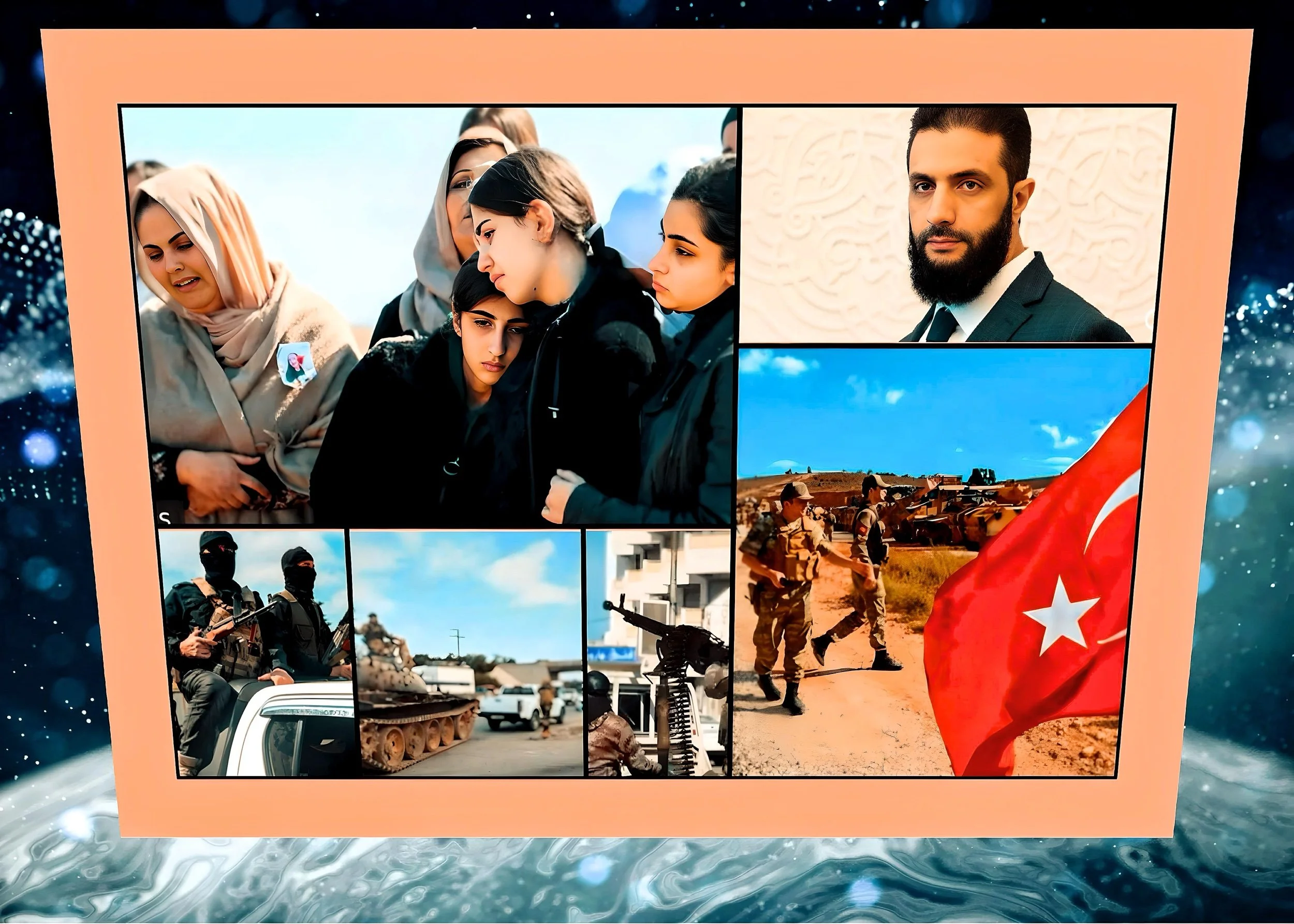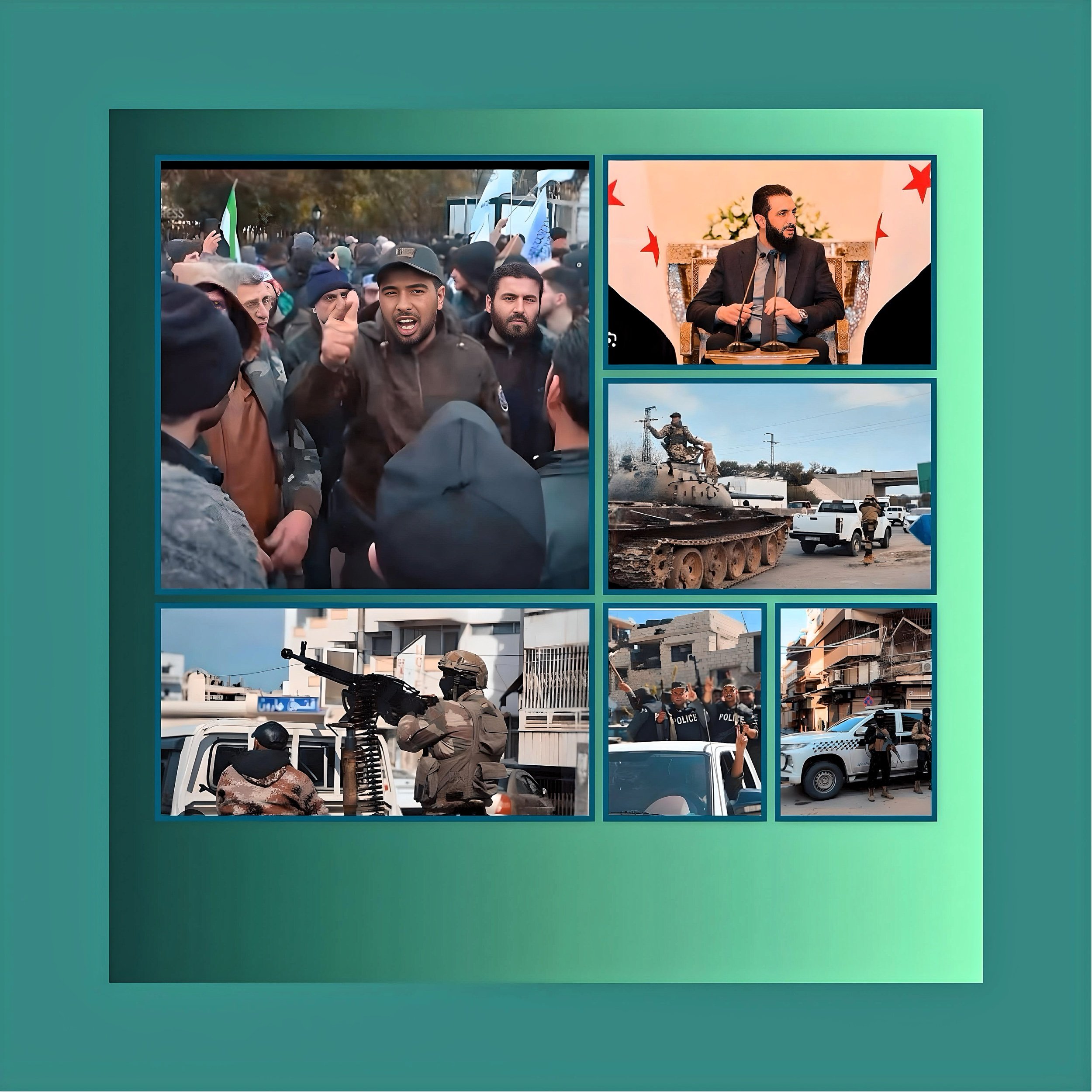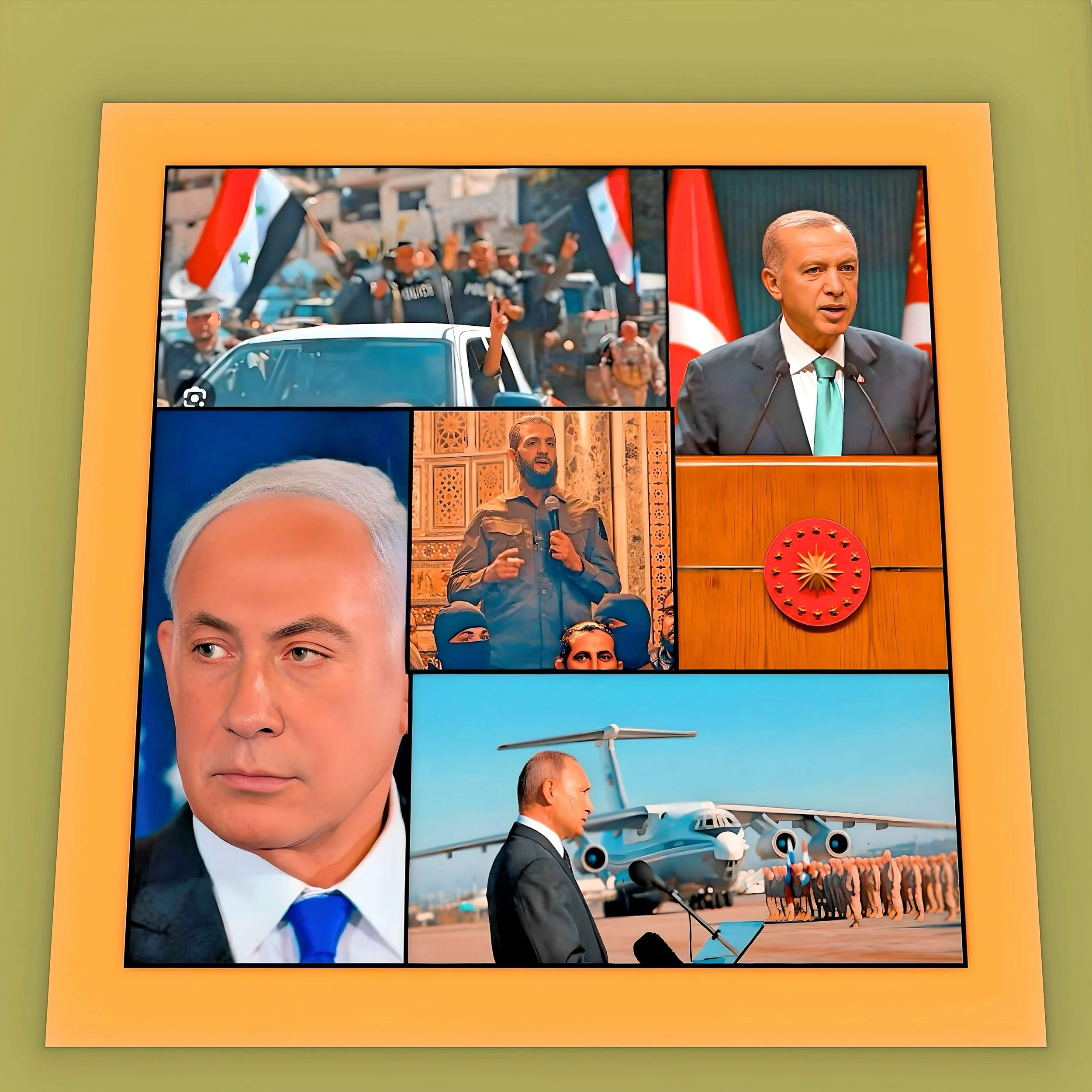Sectarian Violence and Minority Persecution in Post-Assad Syria Under the Interim Government of Ahmed al-Sharaa
Introduction
The overthrow of Bashar al-Assad’s regime in December 2024 marked a seismic shift in Syria’s political landscape. Still, the transition to interim governance under Ahmed al-Sharaa has been marred by widespread sectarian violence, mainly targeting the Alawite minority.
Over 1,300 civilians have been killed in the first three months of 2025, with Alawite communities in Latakia and Tartus provinces bearing the brunt of revenge attacks by Sunni militants and security forces aligned with the new government.
Despite al-Sharaa’s pledges to protect Syria’s ethnic and religious diversity, the massacres of Alawites, coupled with systemic discrimination against Druze, Kurds, and Christians, reveal deep-rooted sectarian fissures exacerbated by the Islamist-led administration’s policies.
The interim government’s inability to rein in armed factions, its historical ties to al-Qaeda, and its failure to address minority grievances threaten to plunge Syria into renewed civil conflict.
The Alawite Minority
From Political Dominance to Systematic Persecution
Historical Context of Alawite Influence
The Alawites, a Shia-derived religious minority comprising 10–15% of Syria’s population, rose to prominence under Hafez al-Assad’s rule in 1970.
For over five decades, Alawites dominated the military, intelligence agencies, and key government institutions, creating a patronage network that marginalized Syria’s Sunni majority.
This dominance bred resentment, which erupted into open hostility following Bashar al-Assad’s ouster.
Alawite villages, perceived as bastions of regime loyalty, became targets for Sunni militant groups seeking retribution for decades of oppression.
Massacres and Retributive Violence Under the Interim Government
Since January 2025, over 340 Alawite civilians, including women and children, have been executed by security forces and Sunni militias in Latakia and Tartus provinces.
Graphic videos circulating on social media show bodies piled in streets and dragged behind vehicles, underscoring the brutality of these attacks. In the village of Sanobar alone, 133 Alawites were killed in a single raid, with militants looting homes and executing families at point-blank range.
The Syrian Network for Human Rights attributes 745 civilian deaths to revenge killings, while government forces have reportedly executed 52 Alawites in Latakia under the guise of combating “pro-Assad insurgents.”
The interim government, led by former Hayat Tahrir al-Sham (HTS) commander Ahmed al-Sharaa, has framed the violence as a counterinsurgency operation against Assad loyalists.
However, local activists and international observers argue that the campaign deliberately targets Alawite civilians, reflecting a broader sectarian agenda.
Al-Sharaa’s past as an al-Qaeda affiliate and his group’s history of war crimes against minorities have fueled distrust among Alawites, who view the government’s investigative committees as token gestures.
The Druze
Caught Between Government Suspicion and Israeli Exploitation
Strategic Autonomy and Political Marginalization
Syria’s Druze, constituting 3% of the population, has historically balanced autonomy with pragmatic engagement with central authorities.
Under Assad, they avoided conscription and maintained local militias to protect their southern strongholds in Sweida and Jaramana.
However, the interim government’s Islamist orientation and al-Sharaa’s reliance on HTS cadres have strained relations.
Druze leaders criticize the administration’s exclusionary policies, such as arbitrary dismissals of public sector workers and the absence of minority representation in decision-making bodies.
Israeli Intervention and Sectarian Manipulation
Israel has exploited Druze vulnerabilities to justify military incursions into southern Syria, ostensibly to “protect” the community from HTS-aligned forces.
In March 2025, Israeli Defense Minister Yoav Gallant warned that attacks on Druze villages would trigger retaliatory strikes, deploying troops to occupy buffer zones near the Golan Heights.
While Druze protesters in Sweida rejected Israeli interference, branding it a violation of Syrian sovereignty, the government’s inability to curb external interventions highlights its weakened authority.
Kurdish Aspirations and the SDF’s Precarious Position
The Syrian Democratic Forces’ Quest for Legitimacy
The Kurdish-led Syrian Democratic Forces (SDF), which controls northeastern Syria, initially welcomed al-Sharaa’s rise as an opportunity to negotiate autonomy within a federal system.
However, the interim government’s refusal to recognize Kurdish self-rule has stalled talks, exacerbating tensions.
SDF commander Mazloum Abdi has urged the U.S. to maintain its military presence, citing fears of ethnic cleansing by Arab militias and Turkish-backed factions.
Economic Sanctions and Humanitarian Crises
U.S. and EU sanctions, imposed during the Assad era, remain a critical obstacle to reconstruction in Kurdish regions.
The SDF’s reliance on oil revenues from fields guarded by American troops underscores the fragility of its economy, while Damascus accuses Kurdish leaders of colluding with “separatist agendas.”
Christian Communities
Between Persecution and Precarious Coexistence
Historical Persecution and Uncertain Protections
Christians, who constitute 10% of Syria’s population, faced persecution under ISIS and other jihadist groups during the civil war.
Although al-Sharaa’s forces have avoided overt attacks on Christian neighborhoods, the government’s Islamist ideology has heightened anxieties.
In Aleppo, HTS fighters distributed bread and fuel to Christian residents post-capture, but community leaders remain skeptical of long-term protections.
Demographic Decline and Emigration
Ongoing violence and economic collapse have accelerated Christian emigration, with communities in Homs and Damascus dwindling to 30% of pre-war levels.
The interim government’s failure to rebuild churches destroyed in the conflict has further eroded trust.
The Interim Government’s Policies
Sectarianism Masquerading as Governance
Al-Shaara Contradictory Rhetoric and Actions
Ahmed al-Sharaa has publicly vowed to protect minorities, declaring, “No group has the right to erase another.”
Yet his administration has purged Alawites from state institutions, dismissed Druze civil servants, and marginalized Kurdish representatives.
The national dialogue conference convened in February 2025 excluded major Alawite and Christian leaders, reinforcing perceptions of sectarian bias.
Militia Rule and the Absence of State Monopoly on Violence
The interim government lacks a unified military or police force, relying instead on HTS-linked militias to enforce order. These groups, responsible for massacres in Alawite villages, operate with impunity, undermining al-Sharaa’s authority.
International Reactions and the Risk of Regional Escalation
Condemnation and Calls for Accountability
The UN and U.S. have condemned the violence, with Secretary of State Marco Rubio demanding accountability for “radical Islamist terrorists.” Russia and Iran, erstwhile Assad allies, have called for UN intervention, while Turkey and Saudi Arabia pressure al-Sharaa to curb sectarian militias.
Humanitarian Crisis and Displacement
Over 200,000 Syrians, primarily Alawites and Christians, have fled coastal regions since March 2025, overwhelming refugee camps in Lebanon and Iraq. The Norwegian Refugee Council warns of catastrophic food shortages, with 60% of Latakia’s population facing starvation.
Conclusion
Syria’s Fragile Future
The interim government’s failure to address sectarian violence threatens to unravel Syria’s social fabric.
Al-Sharaa’s reliance on HTS hardliners, coupled with economic paralysis due to sanctions, risks reigniting civil war. Immediate steps—such as disarming militias, integrating minorities into governance, and initiating reconciliation processes—are critical to stability.
Without systemic reforms, Syria’s minorities will remain pawns in a geopolitical struggle, perpetuating cycles of vengeance and despair.






